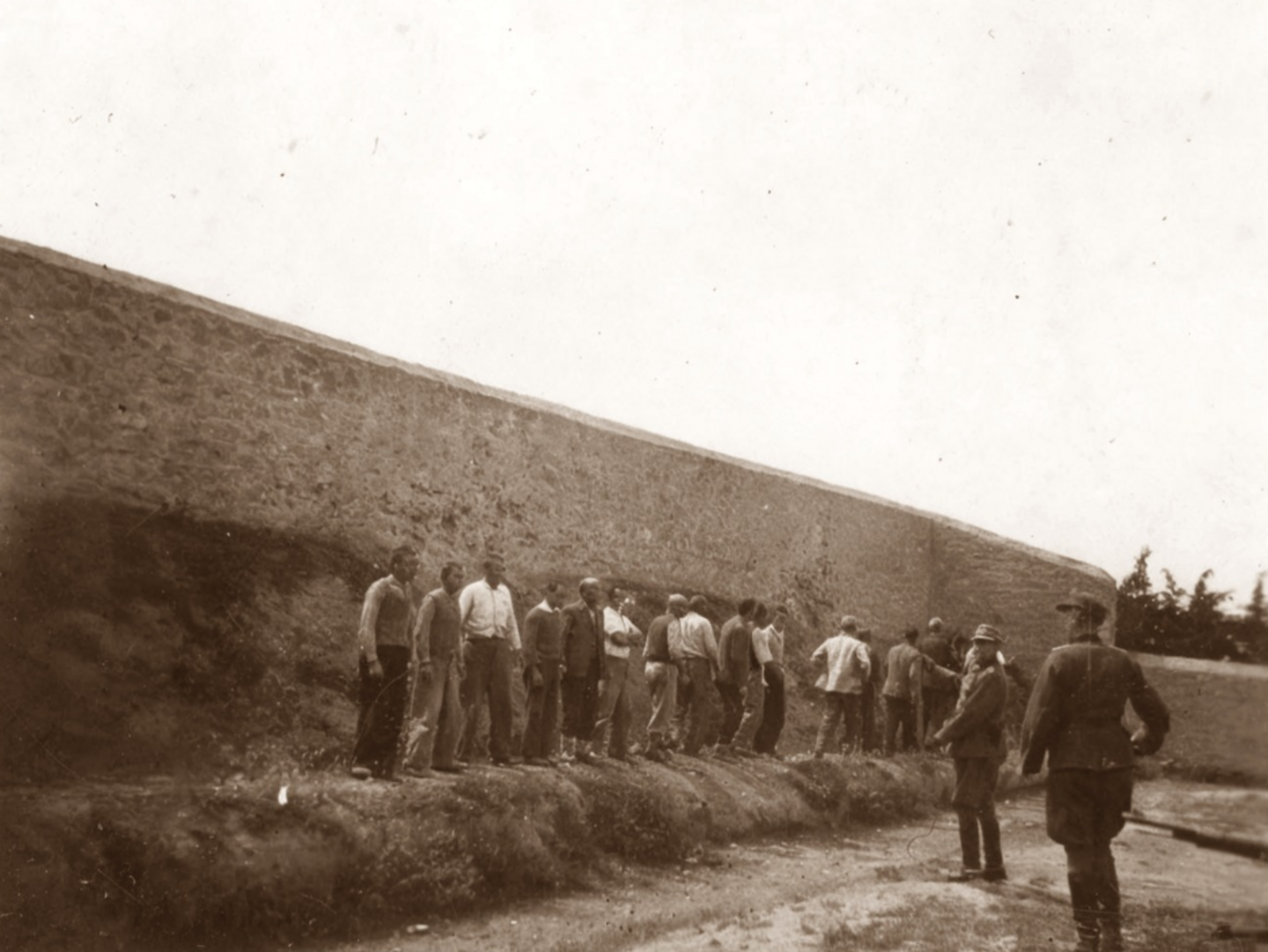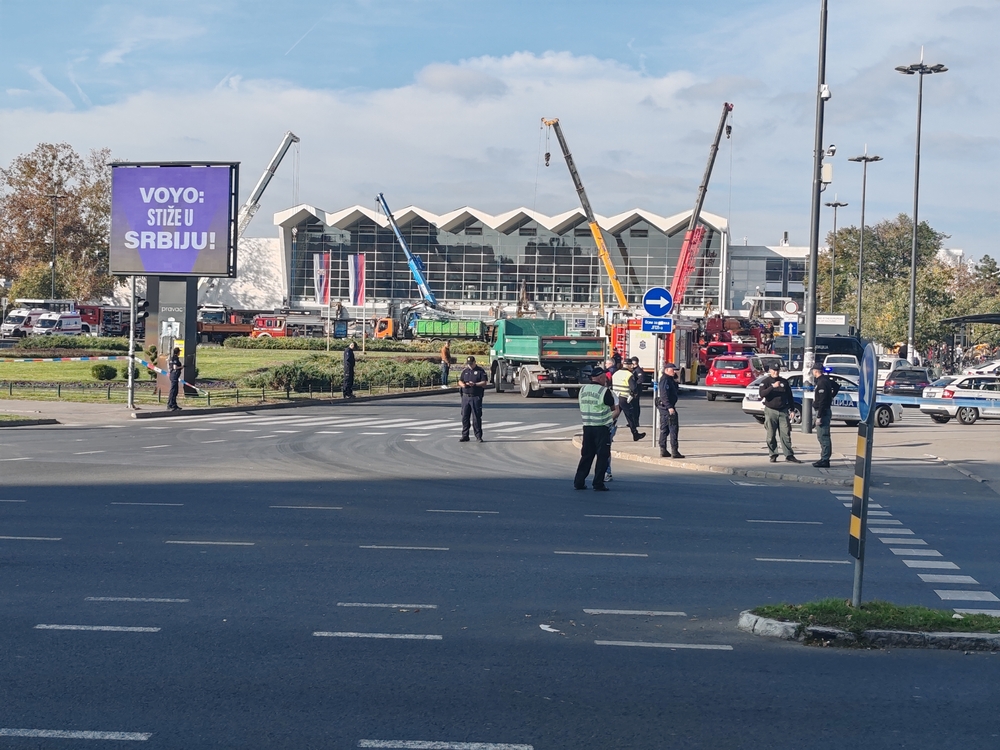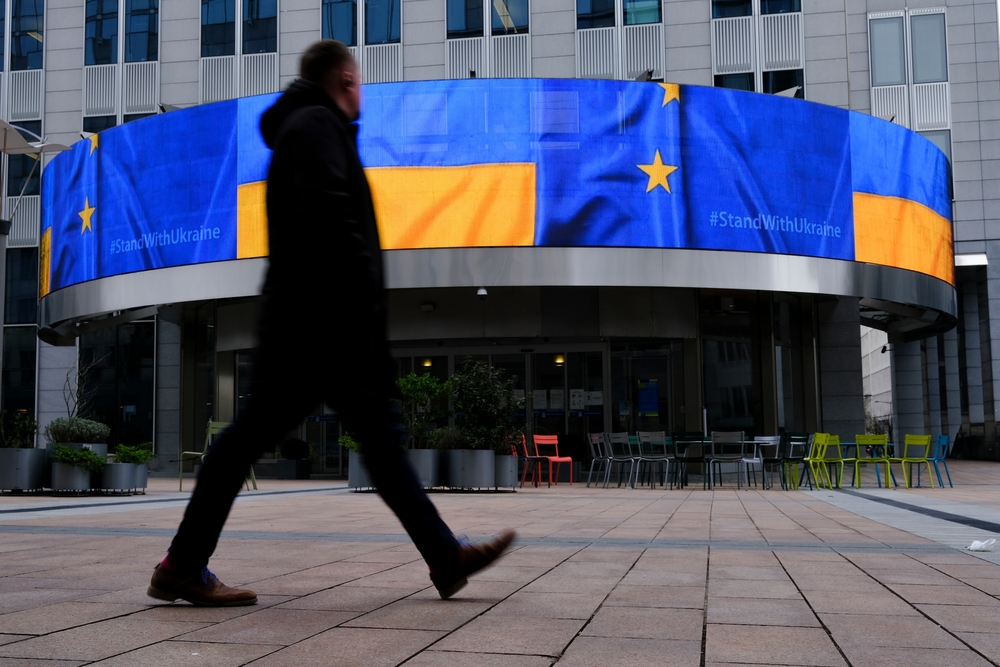Balkans: save the vultures
Considered sacred by the Egyptians, despised in modern times, today vultures are present in all Balkan countries as a fundamental element of ecosystems. However, their future is put at risk by poisoning, transforming them into collateral victims of conflicts between man and nature

Balcani-salvare-gli-avvoltoi
Vultures in Madzharovo, Bulgaria © Ondrej Prosicky/Shutterstock
There is no doubt that since the time of the Egyptians, who considered them sacred to Isis and for whom they embodied the eternal cycle of death and rebirth, consideration for vultures has worsened significantly over the centuries. Yet, science confirms that the contribution of "scavengers" to the functioning of ecosystems is fundamental.
"Removing carcasses, and with them pathogens, brings direct benefits not only to the environment, but also to humans", explains biologist Uroš Pantović, coordinator of a project involving Albania, Bosnia and Herzegovina, Bulgaria, Croatia, Greece, Serbia, and North Macedonia. "Precisely because of their sensitivity to toxic substances – continues the biologist – vultures are ‘flagship species’ that indicate the state of the environment".
The size of the problem
"In the mid-1990s, most vulture populations on the Balkan Peninsula were virtually extinct due to poisoning. Only then – explains Pantović – did environmental associations, scientists, and institutions begin to seriously address the problem”.
It is difficult to quantify the actual spread of these illegal practices. However, according to a study carried out as part of the project coordinated by Pantović, more than 115 vultures are poisoned in the Balkans every year. Between 1998 and 2018, at least 227 acts of poisoning were recorded, which however probably resulted in the death of over 400 birds, considering that several animals usually feed on one carcass.
However, since, according to estimates, only 20% of accidents are detected, the real number could be much higher, around 2300. The species most affected by poisonings is the griffon (385 documented individuals), followed by the Egyptian vulture (36), the cinereous vulture (15) and the lammergeier (one victim). However, these data must be observed in relation to the size of the populations: for example, as regards the lammergeier, to date there are only a handful of breeding pairs confined to the island of Crete.
And it is certainly not good news that these numbers, far from negligible, do not only concern the Balkans, but the entire distribution area of these animals, from Central Europe to Africa, where scientists have even coined the expression ‘African vulture crisis’.
Collateral victims
Despite their undeserved reputation as birds of ill omen, vultures do not cause conflicts, therefore they are rarely attacked. The species that are targeted are mammals, such as wolves, golden jackals, bears, and foxes, as well as rodents, of course. The methods of poisoning are all too banal, but they are put into practice with nefarious imagination. As stated in a study carried out as part of the project, in the Balkans, they range from entire carcasses of dead animals (mostly farm animals, but also game and poultry) to individual body parts and morsels of meat of various sizes.
Sauces, boiled eggs, fish and honey soaked in toxic substances are also used. Usually these are pesticides, which have been banned for some time, but are easily available online or in markets in rural areas. A practice that demonstrates that, since the times when the poisoning campaigns of "pests" animals were subsidized by governments (until the 1970s and 1980s), supplies have not run out.
Once the most used substance was strychnine, while today pesticides from the carbamate group prevail, primarily carbofuran, used in almost one poisoning in two, followed by methomyl, especially widespread in Greece, where potassium cyanide is also used.
Whatever their nature and origin, toxins almost always reach the vultures, at the bottom of the food chain. Among the collateral victims there are also other birds of prey, such as the common buzzard (392 documented poisonings), the white-tailed eagle (111) and the marsh harrier (89), in addition to domestic animals and soil pollution and water.
Although it is difficult to quantify the direct damage to people, there is no doubt that a few grams of the toxic substances used would be enough to cause a massacre. According to another analysis conducted as part of the project, in ten years at least two thousand people in the Balkans have suffered pesticide poisoning, and eleven have died.
The causes: conflict with wildlife and negligence
Usually finding a bait or a carcass is not enough to unambiguously attribute the cause of the animal’s death to the criminal act committed. However, in all project partner countries, the main motive is always the same: the conflict with predatory mammals, primarily wolves, foxes and jackals, but also bears and martens. It is difficult to draw a map of the most affected areas because – as Pantović explains – the number of cases detected is directly proportional to the time and personnel deployed.
However, each country has its own peculiarities. While on the one hand Greece has long been a refuge for many species (the last breeding pairs are still found in Crete), on the other it is one of the countries where poisonings appear to be most widespread, and is in fact in first place in the sad ranking of poisonings drawn up within the project. In Greece, where baiting has only been illegal since 1993, poisoning of stray dogs is also widespread (as in North Macedonia), and some cases even involve the livestock of rival farmers. Although today awareness is much higher – thanks to a huge effort by scientists and environmental NGOs, but also thanks to Life projects, such as The return of the Neophron, dedicated to the Egyptian vulture – the incidence remains very high.
Bulgaria – again thanks to Life projects, including Back to Life, and careful planning of the Natura 2000 network of protected areas – has reached a great milestone, with the return of the black vulture, which had disappeared thirty years earlier. In Serbia, however, where the problem is more accentuated in the north, the misuse of pesticides and toxic substances seems to have a particular impact on rodents, rather than on carnivores, a characteristic shared with Bosnia and Herzegovina, where no breeding pairs currently nest. In Croatia – where, as in Greece, there have been particularly violent carnivore extermination campaigns in the past – vultures prefer the islands and coasts of the Kvarner, where the presence of wildlife is greater, and consequently poisonings are more numerous.
In the entire area there is a constant lack of resources to combat the phenomenon, few poorly equipped laboratories, confusing legislation and, above all, poor awareness of the problem. For this reason, according to the project partners, it is necessary to act on several fronts.
The project: knowledge and awareness raising, prevention, collaboration
With a budget of 1.8 million euros and a duration of five years (from 2020 to 2025), Balkan Detox, in which nine organizations participate – including, in addition to the aforementioned Vulture Conservation Foundation which deals with vultures at a European level, the Mava Foundation, Euronatur, and the naturalistic associations of the oasis involved – it is a particularly ambitious project, but it does not arise from nothing.
The aim of the project is to reduce poisonings by 20% by 2025 through a whole series of actions, from monitoring and field studies to the adoption of common protocols by the countries involved.
We must strengthen the capacity of institutions to manage the problem, stimulate knowledge exchange between all interested parties, but also offer alternative solutions to reduce human-wildlife conflict, for example by encouraging the use of guard dogs and electrified fences to protect flocks from wolves", explains Pantović, adding that communication and awareness raising are another fundamental aspect. “For this reason, the group is organizing numerous awareness raising meetings and educational workshops”.
Improving veterinary and toxicological skills is also essential. "We cannot prosecute a poisoning case before identifying the substances used”. Despite being illegal, poisonings rarely lead to consequences for those responsible. For this reason, the project collaborates with Spain, whose success in managing the problem in Andalusia is considered a model to follow.
Together with Spain, the Wildlife Crime Academy was created, a specialized training course thanks to which – as Pantović underlines – over forty people were trained who work in institutions in partner countries. "We are already noticing improvements in investigative skills and now the people trained are starting to transfer acquired skills, a process that will involve around three hundred people”.
A workshop was also held in Madrid for magistrates investigating the problem of poisoning. The aim is to prosecute more and more cases and, overall, to give greater visibility to the problem to strengthen awareness, especially in rural areas, so as to make poisonings socially unacceptable. “We are only halfway there, it is still too early to quantify the results”, comments Pantović. “However, what we have achieved so far in terms of organization and knowledge, and above all the strong motivation encountered, give us hope and make us very satisfied”.
The Project
Vultures are not only the most majestic birds of European skies, but also essential pillars of ecosystems. Thanks to enormous conservation efforts, carried out for at least two decades, the Balkans are now home to all four species present in Europe: griffon, bearded vulture, Egyptian vulture, and black vulture. However, these birds of prey are collateral victims of a never-ending conflict with wildlife, and sometimes between breeders and farmers. A conflict that takes the form of poisoned morsels and carcasses soaked in pesticides, destined for wolves, foxes, and jackals, but also of pesticides spread by negligent farmers. Poisoning is the first single cause of vulture extinction, and the Balkans are no exeption. The BalkanDetox LIFE aimes to counteract these practices, which also represent a real risk for people. This ambitious European project, developed in collaboration with the Vulture Conservation Foundation, involves seven Balkan countries.
Tag: Animals
Featured articles
Balkans: save the vultures
Considered sacred by the Egyptians, despised in modern times, today vultures are present in all Balkan countries as a fundamental element of ecosystems. However, their future is put at risk by poisoning, transforming them into collateral victims of conflicts between man and nature

Balcani-salvare-gli-avvoltoi
Vultures in Madzharovo, Bulgaria © Ondrej Prosicky/Shutterstock
There is no doubt that since the time of the Egyptians, who considered them sacred to Isis and for whom they embodied the eternal cycle of death and rebirth, consideration for vultures has worsened significantly over the centuries. Yet, science confirms that the contribution of "scavengers" to the functioning of ecosystems is fundamental.
"Removing carcasses, and with them pathogens, brings direct benefits not only to the environment, but also to humans", explains biologist Uroš Pantović, coordinator of a project involving Albania, Bosnia and Herzegovina, Bulgaria, Croatia, Greece, Serbia, and North Macedonia. "Precisely because of their sensitivity to toxic substances – continues the biologist – vultures are ‘flagship species’ that indicate the state of the environment".
The size of the problem
"In the mid-1990s, most vulture populations on the Balkan Peninsula were virtually extinct due to poisoning. Only then – explains Pantović – did environmental associations, scientists, and institutions begin to seriously address the problem”.
It is difficult to quantify the actual spread of these illegal practices. However, according to a study carried out as part of the project coordinated by Pantović, more than 115 vultures are poisoned in the Balkans every year. Between 1998 and 2018, at least 227 acts of poisoning were recorded, which however probably resulted in the death of over 400 birds, considering that several animals usually feed on one carcass.
However, since, according to estimates, only 20% of accidents are detected, the real number could be much higher, around 2300. The species most affected by poisonings is the griffon (385 documented individuals), followed by the Egyptian vulture (36), the cinereous vulture (15) and the lammergeier (one victim). However, these data must be observed in relation to the size of the populations: for example, as regards the lammergeier, to date there are only a handful of breeding pairs confined to the island of Crete.
And it is certainly not good news that these numbers, far from negligible, do not only concern the Balkans, but the entire distribution area of these animals, from Central Europe to Africa, where scientists have even coined the expression ‘African vulture crisis’.
Collateral victims
Despite their undeserved reputation as birds of ill omen, vultures do not cause conflicts, therefore they are rarely attacked. The species that are targeted are mammals, such as wolves, golden jackals, bears, and foxes, as well as rodents, of course. The methods of poisoning are all too banal, but they are put into practice with nefarious imagination. As stated in a study carried out as part of the project, in the Balkans, they range from entire carcasses of dead animals (mostly farm animals, but also game and poultry) to individual body parts and morsels of meat of various sizes.
Sauces, boiled eggs, fish and honey soaked in toxic substances are also used. Usually these are pesticides, which have been banned for some time, but are easily available online or in markets in rural areas. A practice that demonstrates that, since the times when the poisoning campaigns of "pests" animals were subsidized by governments (until the 1970s and 1980s), supplies have not run out.
Once the most used substance was strychnine, while today pesticides from the carbamate group prevail, primarily carbofuran, used in almost one poisoning in two, followed by methomyl, especially widespread in Greece, where potassium cyanide is also used.
Whatever their nature and origin, toxins almost always reach the vultures, at the bottom of the food chain. Among the collateral victims there are also other birds of prey, such as the common buzzard (392 documented poisonings), the white-tailed eagle (111) and the marsh harrier (89), in addition to domestic animals and soil pollution and water.
Although it is difficult to quantify the direct damage to people, there is no doubt that a few grams of the toxic substances used would be enough to cause a massacre. According to another analysis conducted as part of the project, in ten years at least two thousand people in the Balkans have suffered pesticide poisoning, and eleven have died.
The causes: conflict with wildlife and negligence
Usually finding a bait or a carcass is not enough to unambiguously attribute the cause of the animal’s death to the criminal act committed. However, in all project partner countries, the main motive is always the same: the conflict with predatory mammals, primarily wolves, foxes and jackals, but also bears and martens. It is difficult to draw a map of the most affected areas because – as Pantović explains – the number of cases detected is directly proportional to the time and personnel deployed.
However, each country has its own peculiarities. While on the one hand Greece has long been a refuge for many species (the last breeding pairs are still found in Crete), on the other it is one of the countries where poisonings appear to be most widespread, and is in fact in first place in the sad ranking of poisonings drawn up within the project. In Greece, where baiting has only been illegal since 1993, poisoning of stray dogs is also widespread (as in North Macedonia), and some cases even involve the livestock of rival farmers. Although today awareness is much higher – thanks to a huge effort by scientists and environmental NGOs, but also thanks to Life projects, such as The return of the Neophron, dedicated to the Egyptian vulture – the incidence remains very high.
Bulgaria – again thanks to Life projects, including Back to Life, and careful planning of the Natura 2000 network of protected areas – has reached a great milestone, with the return of the black vulture, which had disappeared thirty years earlier. In Serbia, however, where the problem is more accentuated in the north, the misuse of pesticides and toxic substances seems to have a particular impact on rodents, rather than on carnivores, a characteristic shared with Bosnia and Herzegovina, where no breeding pairs currently nest. In Croatia – where, as in Greece, there have been particularly violent carnivore extermination campaigns in the past – vultures prefer the islands and coasts of the Kvarner, where the presence of wildlife is greater, and consequently poisonings are more numerous.
In the entire area there is a constant lack of resources to combat the phenomenon, few poorly equipped laboratories, confusing legislation and, above all, poor awareness of the problem. For this reason, according to the project partners, it is necessary to act on several fronts.
The project: knowledge and awareness raising, prevention, collaboration
With a budget of 1.8 million euros and a duration of five years (from 2020 to 2025), Balkan Detox, in which nine organizations participate – including, in addition to the aforementioned Vulture Conservation Foundation which deals with vultures at a European level, the Mava Foundation, Euronatur, and the naturalistic associations of the oasis involved – it is a particularly ambitious project, but it does not arise from nothing.
The aim of the project is to reduce poisonings by 20% by 2025 through a whole series of actions, from monitoring and field studies to the adoption of common protocols by the countries involved.
We must strengthen the capacity of institutions to manage the problem, stimulate knowledge exchange between all interested parties, but also offer alternative solutions to reduce human-wildlife conflict, for example by encouraging the use of guard dogs and electrified fences to protect flocks from wolves", explains Pantović, adding that communication and awareness raising are another fundamental aspect. “For this reason, the group is organizing numerous awareness raising meetings and educational workshops”.
Improving veterinary and toxicological skills is also essential. "We cannot prosecute a poisoning case before identifying the substances used”. Despite being illegal, poisonings rarely lead to consequences for those responsible. For this reason, the project collaborates with Spain, whose success in managing the problem in Andalusia is considered a model to follow.
Together with Spain, the Wildlife Crime Academy was created, a specialized training course thanks to which – as Pantović underlines – over forty people were trained who work in institutions in partner countries. "We are already noticing improvements in investigative skills and now the people trained are starting to transfer acquired skills, a process that will involve around three hundred people”.
A workshop was also held in Madrid for magistrates investigating the problem of poisoning. The aim is to prosecute more and more cases and, overall, to give greater visibility to the problem to strengthen awareness, especially in rural areas, so as to make poisonings socially unacceptable. “We are only halfway there, it is still too early to quantify the results”, comments Pantović. “However, what we have achieved so far in terms of organization and knowledge, and above all the strong motivation encountered, give us hope and make us very satisfied”.
The Project
Vultures are not only the most majestic birds of European skies, but also essential pillars of ecosystems. Thanks to enormous conservation efforts, carried out for at least two decades, the Balkans are now home to all four species present in Europe: griffon, bearded vulture, Egyptian vulture, and black vulture. However, these birds of prey are collateral victims of a never-ending conflict with wildlife, and sometimes between breeders and farmers. A conflict that takes the form of poisoned morsels and carcasses soaked in pesticides, destined for wolves, foxes, and jackals, but also of pesticides spread by negligent farmers. Poisoning is the first single cause of vulture extinction, and the Balkans are no exeption. The BalkanDetox LIFE aimes to counteract these practices, which also represent a real risk for people. This ambitious European project, developed in collaboration with the Vulture Conservation Foundation, involves seven Balkan countries.
Tag: Animals











